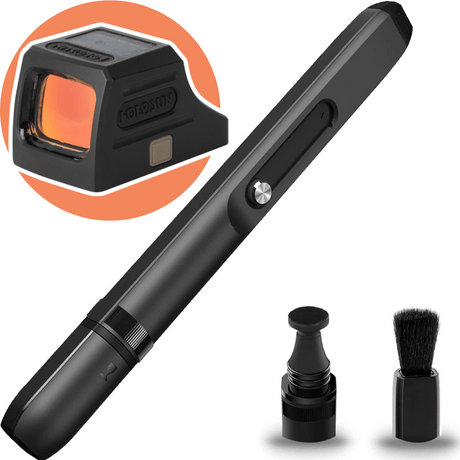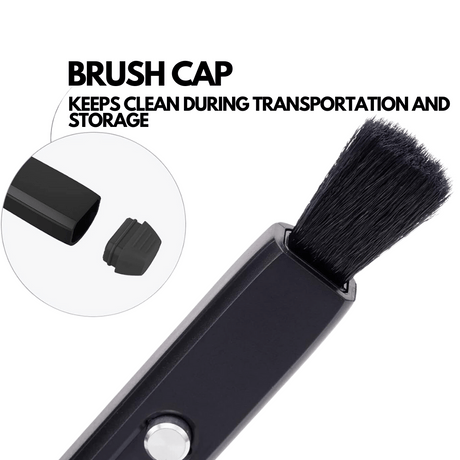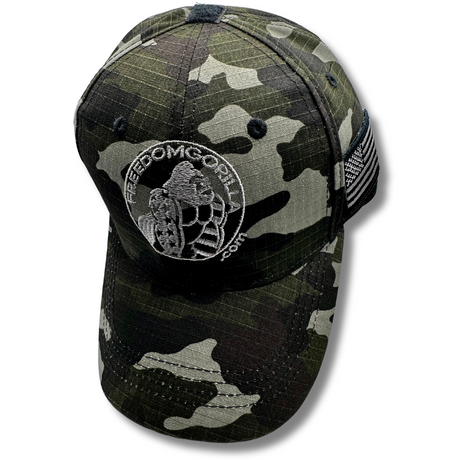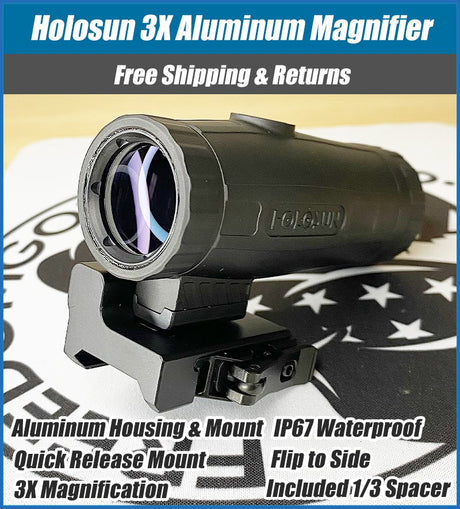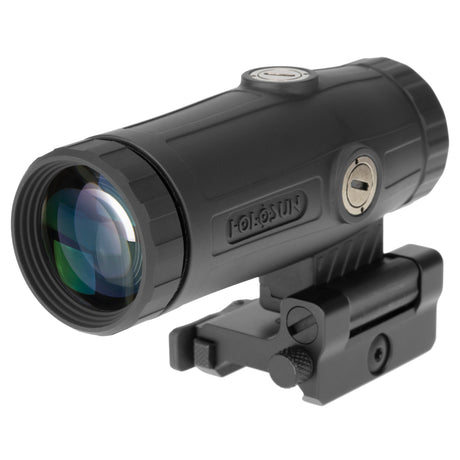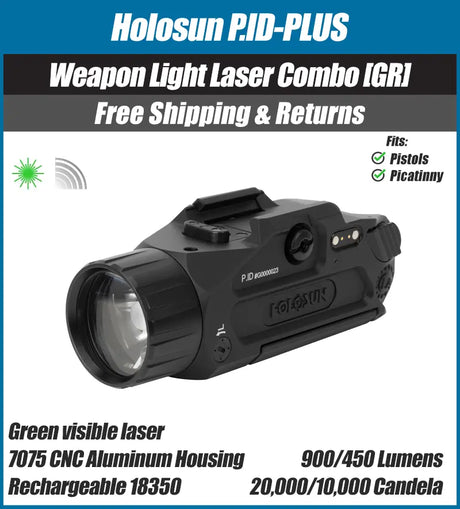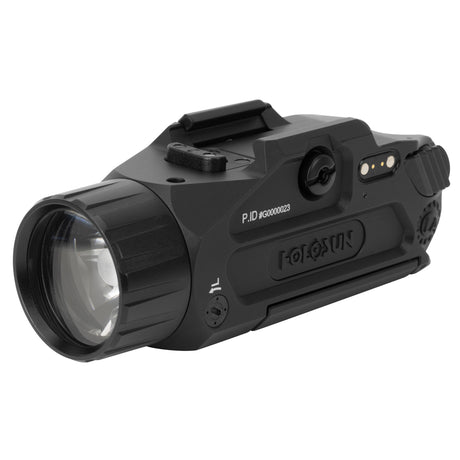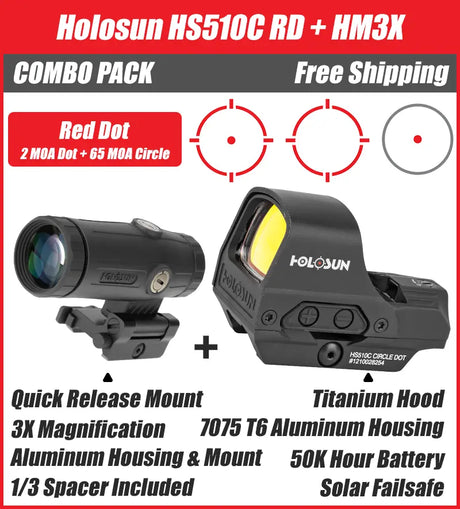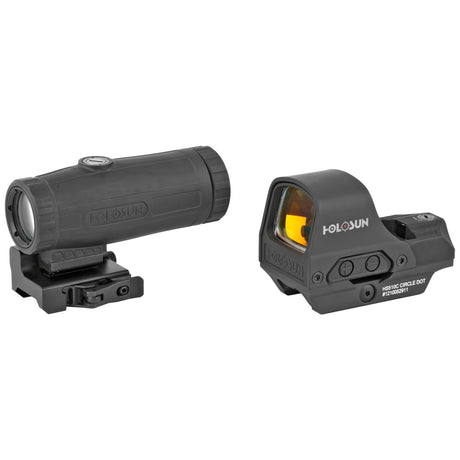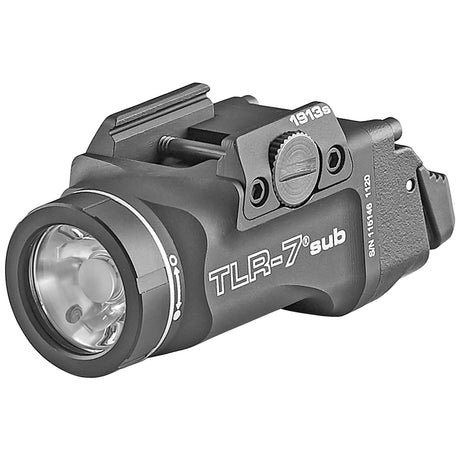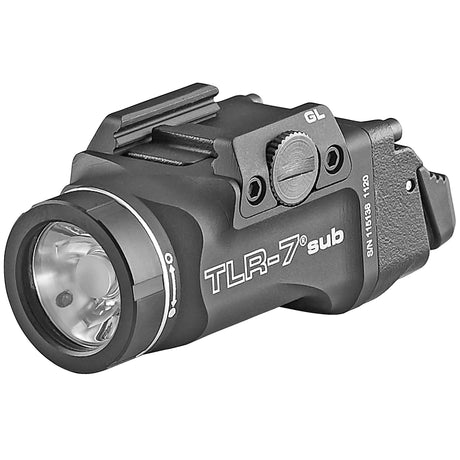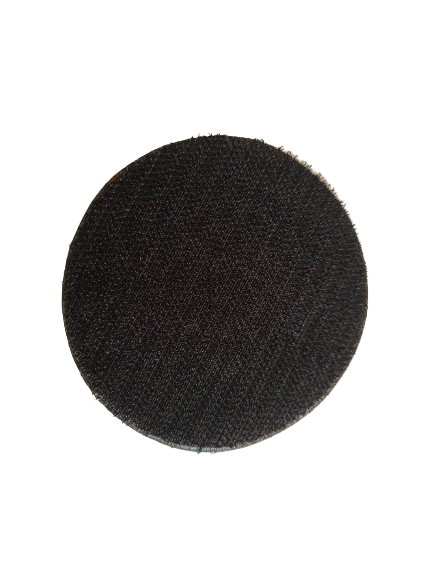At SHOT Show this year, Holosun announced a bunch of cool new optics but I’m most excited for the SCS Carry. The SCS Carry is a continuation of the SCS line, which simply stands for Solar Charging Sight. There’s no battery you have to worry about swapping, because this optic has a solar panel that charges itself. And with a battery life of 20,000 hours, as long as you can charge it for a few hours at least some point within the 2 years of battery life, you’re good to go. And simply going to the range and using the optic will charge it enough as well.
So far Holosun has made the SCS line firearm specific – there is the Glock MOS version, one for the Walther PDP, one for S&W MP2.0, one for the Sig P320, and one for the HK VP9. This really expands what the SCS lineup can do because there are a lot of guns that can direct mount the SCS Carry like the Sig P365, Springfield Hellcat, and S&W Equalizer to name a few.
Essentially if you have a 407k, 507k, or EPS Carry you can use the SCS Carry. So if the EPS Carry already has a K series footprint and is an enclosed optic, meaning that there is a hood and second pane of glass enclosing the emitter, then why does the SCS Carry exist? Is it an upgrade from the EPS Carry? We’ve been asked these questions by many people already, and we’ll cover when someone might want the EPS Carry over the SCS Carry and vice versa.
Differences Between The Two Optics

Let’s start with the differences between the two optics. The main difference is the solar panel, and there are two distinctions to the SCS’s solar panel compared to the EPS Carry’s solar panel.
Battery Life Differences
The first distinction is the super obvious one, the battery life. The SCS can potentially operate indefinitely with the internal, rechargeable 20,000 hour battery. So the SCS has a rechargeable battery whereas the EPS Carry has solar failsafe. Solar Failsafe just means if your EPS Carry’s battery fails, you have a backup power source when natural or artificial light is available. So the EPS Carry’s Solar Failsafe is not charging the battery like it does with the SCS Carry, it is just a backup battery source. The EPS Carry’s battery life is 50,000 hours though so it should last a long time.
Solar Panel Differences
The SCS Carry’s solar panel system has more advanced multi-directional light sensors to auto adjust brightness in dynamic lighting situations. Which means that its auto-brightness mode works better because it adjusts better to the light. If you’re a fan of auto brightness mode, this might be more enticing than the EPS Carry. One thing to note here is that only the MRS EPS Carry has a solar panel, the 2 MOA dot and 6 MOA dot options do not come with a solar panel.
Shake Awake
First for those of you who do not know what Shake Awake is, most Holosun optics will automatically turn off after 10 minutes of inactivity, and when you pick them up they automatically turn on. This is mainly to preserve the battery life.
The SCS Carry doesn’t not have shake awake like the EPS Carry does. This is because the SCS models are meant to be turned on and left on. The SCSs charge faster than they can use the battery, so if you decide to choose the SCS Carry, just turn it on to your desired reticle and leave it there.
Button Operations
If you are familiar with Holosun optics, they generally have a + and a - button on the side of the optic. The buttons do a few different operations like change brightness levels, change modes (auto, manual, lock), and even change reticles (dot, circle, dot + circle). The EPS Carry is no different in that it has the + and - buttons and they operate like every other Holosun optic that has those buttons.
The SCS Carry however only has one button. The one button turns the optic on and off as well as changes the reticle option (dot, circle, dot + circle). One thing to note, the SCS Carry only has auto mode, it does not have a manual mode like the EPS Carry. So if you want to temporarily increase the brightness, you quick press the button and it will override the brightness for 30 minutes.

Reticle Color Options
The EPS Carry has many different models ranging from a 2 MOA Dot only, a 6 MOA Dot only, a multi-reticle system AND all of those come in a red or green reticle option. Whereas the SCS Carry is only available with the green multi-reticle system. If you want a red dot, the EPS Carry would be your best choice.
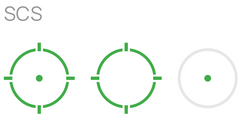
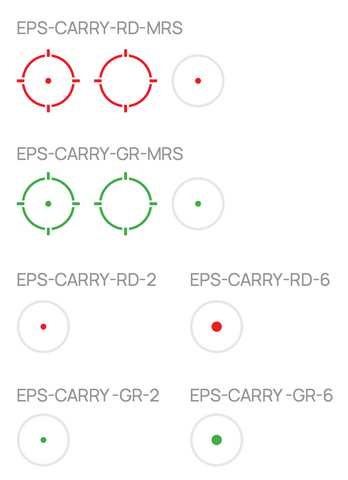
Overall Design
The final major difference between the two optics is that they look different. The SCS Carry reminds me more of the SCS 320 design, where it has curved sides. Whereas the EPS Carry is more square and blocky. The overall design isn’t something too crazy, but depending on how you want your build to look, it’s something to consider.
Price
The SCS Carry has a price of $399.99. Whereas the EPS Carry MRS Green, I’m using the green dot as the comparison since the SCS Carry only comes in green, has a price of $429.99. So a $30 difference between the two different styled optics.
Similarities Between The Two Optics
Now that we covered the differences between the two optics, let’s discuss the similarities. Overall both have:
- The same footprint (K series footprint)
- Come with a RMSC-to-K adapter plate
- Both have enclosed emitters
- Both have the same window size (0.77x0.58 in)
- Both are made of durable 7075 T6 aluminum
- Both have a 1.5 MOA adjustment for windage and elevation
- Both are IPX8 Waterproof rated
- Both have nitrogen purged enclosed housing
- Both have aspheric glass lens with zero distortion
Overall Verdict
Now that you know all the similarities and differences, you might be wondering when is it best to use a SCS Carry vs the EPS Carry? Here’s my opinion on it… The SCS Carry is really for someone who wants a set-it-and-forget-it style optic. Once the SCS Carry is installed on the slide and you turn it to the reticle you want, you never have to touch it again. It only has the auto mode (unless you manually override the brightness), so the brightness will always auto-adjust for you. You never have to worry about replacing the battery, just make sure you go to the range once or twice a year so it can charge. So really for the shooter that wants to have a low to zero maintenance optic that they don’t have to fuss with, this is a great choice. Plus many people were asking Holosun to make it. I wouldn’t be surprised if a RMR version comes out in the next year or two as well.
Let me know your thoughts on what you think of the SCS Carry. Are you going to get one? Do you want an RMR version? Keep an eye out on our YouTube channel for new videos with the SCS Carry when they’re released to dealers!
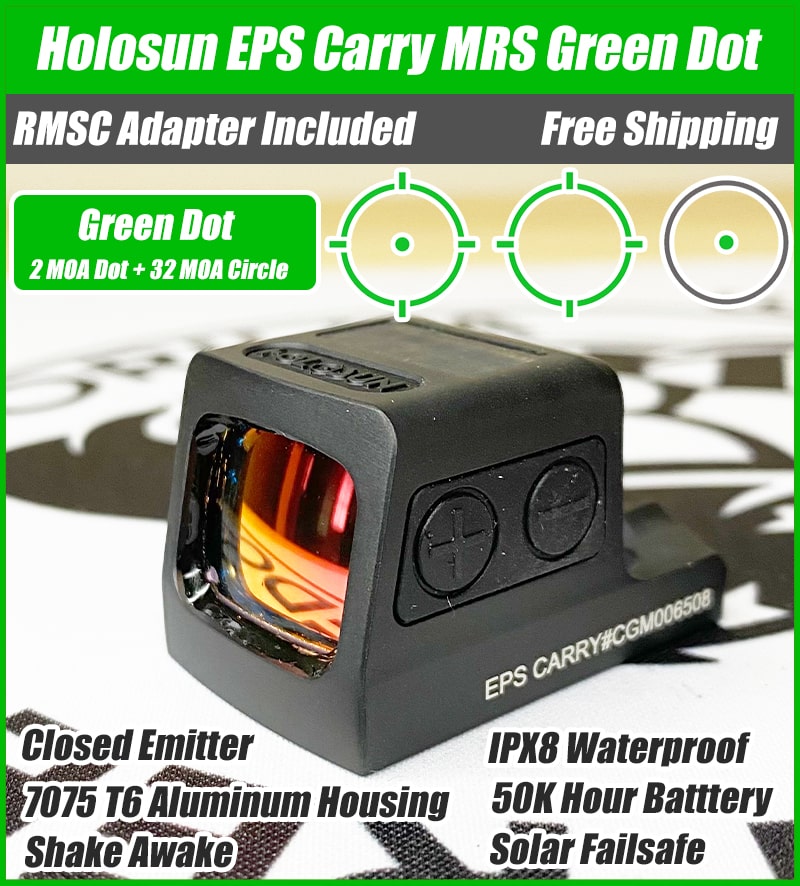 Starts at $329+ Starts at $329+
|
Holosun EPS Carry: This is one of the most popular enclosed emitter pistol red dots on the market. It has a 7075 T6 aluminum housing, comes in 2 MOA, 6 MOA, or MRS reticle and includes an RMSc adapter plate. The MRS models have a solar failsafe and auto + manual brightness modes. |
 Starts at $399+ Starts at $399+
|
Holosun SCS Carry: This is the latest optic to be released from Holosun. It’s an enclosed emitter and comes with and RMSc adapter plate. It comes in a green MRS reticle only. It features Holosun’s newest “Solar Charging Technology”. This means it has an internal rechargeable battery with a 20K hour power reserve. The internal battery is constantly being charged by the solar panel. Both sunlight and artificial light charge the battery. The battery consumes power slower than it gets recharged, which means you have theoretical infinite battery life. This optic does not have shake awake and has auto brightness only. |


